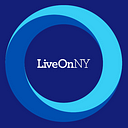By Rabbi Ari Perl
Each Spring, Jews across the globe observe Passover as a celebration of freedom from slavery. But embedded in the biblical narrative of the Exodus from Egypt are radically new ideas that have shaped not only the development of a nascent People of Israel, but also the spiritual and ethical outlook of the monotheistic faith traditions that follow. And one of those ideas has a lot to teach us about how to define a hero, and how to honor them.
Among the most important of these ideas is the democratization of religious experience. In ancient Egypt, religious rite was the domain of a small circle of priests- chief of whom was the Pharaoh- who served as intermediaries between the people and their gods. This exclusive group was revered in Egyptian society and honored with the building of great edifices. But when Moses demands a three-day furlough for the Hebrew slaves to worship the God of Israel, he insists that the entire nation participate in the experience: men and women, young and old (Exodus 10:9). Pharaoh responds with incredulity: if this furlough were truly for the purpose of worship, a group of men to serve as ‘priests’ would more than suffice.
This concept is further amplified in God’s marching orders for His newly freed people: “And you shall be for me a nation of priests…” (Exodus 19:6). What exactly is a ‘nation of priests’? Of course, the People of Israel would have their designated spiritual leaders. But for Judaism, and the monotheistic faith traditions that followed, the role of the religious hero is not to BE the people’s connection to the Divine, but rather to inspire, educate, model and facilitate each individual’s direct connection with God, thereby giving rise to a ‘nation of priests.’
Over the past year, we have all become acutely aware of the healthcare heroes fighting on the front lines of the war against Covid-19. We are amazed by their skill, moved by their compassion, awed by their dedication, and uplifted by their selfless sacrifice. But as much as we want to honor our healthcare heroes, we must resist the powerful urge to turn them into a ‘priestly class,’ admired and venerated from afar. Doing so only diminishes their greatness and detracts from their legacy.
If we really want to honor our healthcare heroes, we need to be inspired by their example and follow their lead. There are 110,000 people in the U.S. and 10,000 New Yorkers fighting for their lives as they wait for a kidney, liver, heart or lung transplant. They’re on the ‘waiting list’ for an organ because the healthcare professionals can’t save them. But we can. As we look ahead to both Passover and Donate Life Month (April), we need to summon our own inner strength, tap into our own wellsprings of compassion and courageously join the fight to save lives by becoming organ donors and encouraging others to do the same. By registering as donors, having conversations with family members, and bringing donation awareness programs to our communities, we can transform ourselves into a ‘nation of heroes.’
So what’s the best way to honor our incredible healthcare heroes? Pharaoh might build monuments to this exceptional group. But Moses would say we should become them.
Rabbi Ari Perl is the Vice President of Multicultural Engagement at LiveOnNY. To learn more about the Jewish perspective on organ donation, please click here.
